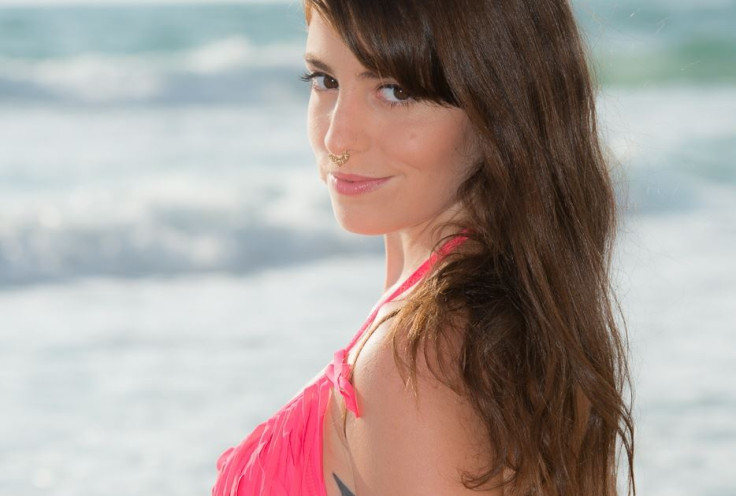Henya Mania the Israeli vegan YouTuber who believes factory farming is akin to the Holocaust
Henya Mania speaks on veganism, her channel and why she believes factory farming can be compared to Holocaust.
IBTimes UK interviewed Henya Von Perez, Israel's most famous vegan YouTuber. Von Perez became a vegan more than 10 years ago and decided to create a YouTube channel to raise awareness on animal cruelty.
With more than 61,000 followers on YouTube and more than 80,000 on her Instagram page, her popularity is increasing both in Israel and abroad.
"I have more than 150,000 followers all over my social media, which is just crazy," Von Perez said. "Some people do actually see me as a role model, and this does make me feel responsible for what I produce and say to people."
To her followers – whom she refers to as "maniacs" – and people who want to become vegan, Von Perez suggested they follow a simple plant-based diet without focusing on trends – such as Raw till Four or High Carb Low Fats diets – some of which can be very restrictive.
"I have followed advice from other people and this has harmed me in many ways, so I want to be sure I promote only things that are healthy, " she explained. "To the animals, it does not matter what type of diet you follow, as long as you do not consume animal products."

Finally, Von Perez shared one of her plans for 2017 with IBTimes UK: "I am going to the US in June, I will probably be there for a month and a half," she said. "It is going to be my first time in the US and I am very excited to meet all my maniacs there and eat all the vegan food."
Can factory farming can be compared to the Holocaust?
Von Perez is among those animal right activists who controversially compared animal abuse within factory farming to the Holocaust – the genocide against, among others, at least six million Jews.
This comparison has often attracted outrage, with people claiming it is highly offensive towards the victims of the genocide and those who survived the crimes perpetrated by Nazi Germany.
But Von Perez, who is Jewish, believes the comparison should not be regarded as a way to trivialise the horrors of World War II.
"I visited the Auschwitz Birkenau extermination camp, I have heard about the crimes the Nazis committed against my people since I can remember myself. I've been to countless of memorial days, ceremonies and monuments," she explained.
"None of these compare to being there in person and seeing those horrors in my own eyes. I'm feeling so proud to be Jewish, I'm feeling so lucky to be alive and I'm feeling such [a] tremendous and profound sadness. The horrors this world has seen are just incomprehensible. I just wish we could not only remember and commemorate, but also extend our compassion to all living beings. Human or animal, in suffering we are all equal."
American author Roberta Kalechofsky, who focuses her work on animal rights within Judaism, wrote a whole book on the issue – "Animal Suffering and the Holocaust: The Problem With Comparisons".
Kalechofsky, who is also the founder of Jews for Animal Rights group, points out: "The reason I object to comparing women to slaves and eating meat to the Holocaust--and other such comparisons---is that these comparisons blend all evils together and eliminate the crucially different histories of these different wrongs. Ultimately this makes it impossible for us to understand the Holocaust or slavery, or animal cruelty, and leads to ignorance about evils rather than to enlightenment.
"The agony of animals arises from different causes from those of the Holocaust. Human beings do not hate animals. They do not eat them because they hate them. They do not experiment on them because they hate them, they do not hunt them because they hate them. These were the motives for the Holocaust. Human beings have no ideological or theological conflict with animals. If pain is the only operative metaphor, as it was in PETA's advertisement, then why not compare the agony of an animal being led to the slaughterhouse with the agony of a child dying of cancer, having his insides eviscerated, radiated, blown out and put back in again."
© Copyright IBTimes 2024. All rights reserved.






